Black History Month 2022: helpful resources

We are celebrating Black History Month by interviewing those who are a part of the Black community and work within the field of STEM, as we want to allow more diverse voices to be heard and acknowledge those whose achievements need honoring.
In this piece, we highlight the advice our experts have received during their careers and the resources they have found the most helpful whilst working within the STEM industry. We posed the question:
‘Could you share any key resources that you have found helpful?’
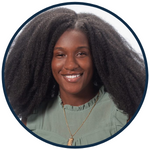 Nicole Fleming, PhD
Nicole Fleming, PhD
Scientist II/Bioanalytical Project Manager
Bioagilytix (NC, USA)
Despite the hurdles I have overcome, I truly believe that I was set up for success. There are several books, podcasts, movies and articles available that could be mentioned. However, in hindsight, having knowledgeable mentors and advocates was a key resource throughout my graduate experience. One experience that comes to mind, was a mentor who took the time to discuss and create a list of pros and cons for all the grad schools that I was accepted to. It was her idea. Other people took time to read my entire dissertation, listen to my countless presentation practices, review a grant proposal or provide feedback on my resume. Friends provided an environment where I could comfortably write my final thesis or unwind, food and laughter included. It was those resources that ultimately helped me and are still impactful today.
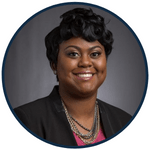 Maria Dixon, PhD
Maria Dixon, PhD
Scientist Training Program Manager
Bioagilytix (NC, USA)
I have found many helpful key resources such as attending minority conferences, networking opportunities and fostering relationships with peers across various disciplines. My family, friends and mentors have contributed to my success throughout my journey. Whether practicing oral and poster presentations, serving my community with my sorority sisters or having candid conversations with my mentors about ‘life’ kept me grounded throughout my doctoral studies.
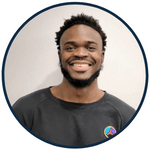 William Njoh-Paul
William Njoh-Paul
Lab Analyst
ICON plc (KS, USA)
I am a member of the American Society for Microbiology (WA, USA), and so I spend a good amount of my time reading the latest reports on the most recent updates within microbiology. Aside from that, I have used online resources such as Khan Academy and Coursera in the past, to help tackle some academic problems that I was struggling with. I have found those resources to be very insightful. I also look to my peers and colleagues for help with subjects in which I have limited knowledge. No one can know everything, so learning from other scientists has always been one of my best resources.
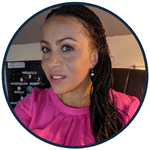 Tinaya Gray
Tinaya Gray
Senior Director, Project Delivery
ICON plc (NC, USA)
Having a network is invaluable in this career. It’s helpful to stay connected to both formal and informal networks that keep you informed, and therefore, help you to focus your energy on relevant pursuits. Things can change quickly if an asset fails or if we learn something new about a disease or patient population. Right now, diversity and inclusion is an important topic, staying informed on developments and outcomes will help us figure out gaps in the current approaches and turn those into opportunities.
It’s also important to find mentors and eventually a sponsor. Identify people who have the experience you are looking to gain and who are in the spaces you want to gain access to. Proactively seek out opportunities to learn from them, show preparation and drive those relationships. In my experience, it is rare that key resources will appear organically – part of advancing your career is managing and driving your network.
 Rebecca Wates, PhD
Rebecca Wates, PhD
Senior Program Manager
KCAS (KS, USA)
My most helpful resources have always been people. Mentors, friends and allies have been invaluable along the way. My graduate advisor, Dr M. Sharon Stack, Director, Harper Cancer Research Institute, University of Notre Dame (IN, USA), saw my potential even when I couldn’t see it for myself. She always encouraged excellence from me and continues to be a friend and mentor nearly 10 years since I completed my degree. Recently, I’ve been involved with Black Women in Cancer Research, which is a networking group for professionals in the field and there is a companion organization, Black Men in Cancer Research, as well. I highly recommend interested readers check out these groups (via their website, Facebook or LinkedIn).
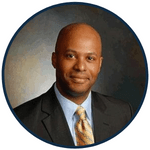 Brennon Marcano,
Brennon Marcano,
Chief Executive Officer
The National GEM Consortium (VA, USA)
I think that now there are many resources that underrepresented minorities (URMs) can turn to for support and those that I often suggest to up-and-coming STEM practitioners. For one, employee resource groups are much more robust and functional and can provide an effective and immediate support system. You don’t have to navigate your workplace environment on your own. Also, outside of your workplace, there are many organizations out there that support URMs in STEM. Entities, such as the National Society of Black Engineers (NSBE) or the Society of Hispanic Professional Engineers (SHPE) or the Society of Women Engineers (SWE) have thousands of members that can provide support, mentorship and sponsorship. Finally, I would suggest, whether you are in an academic or industry environment, to leverage the diversity officers that are at your disposal. The role of the CDO has evolved a lot over the years and they are now truly ‘C’ suite executives, who know how to assist with an organization’s overall strategy. Thus, a relationship with them can give you immediate access to the executive levels of your organization and that can propel your career. Of course, let’s not forget organizations that financially support URMs in STEM like GEM.
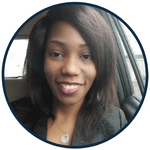 Blessing Okai
Blessing Okai
Lab Data Analyst
Q2 Solutions (Aberdeen, UK)
I have been fortunate to have access to people who are willing to help and provide guidance in areas I needed help; and so, my first key resource will be the people I have around me who are in the field, have a similar growth mindset and are ahead in their careers. I took advantage of my school’s mentorship program and got a mentor who was willing to listen to me and provide insight. Online resources also helped a lot. I took courses on Udemy and LinkedIn Learning. An additional resource I found helpful was attending webinars and online meetups that were hosted by companies and people in my field. Some notable ones are STEM Women and Women in Data Science (WiDS). From these webinars, I was able to network with more people who have helped me in my career journey.
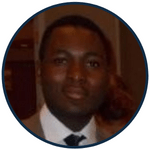 René Fuanta
René Fuanta
Biochemist and Assistant Professor
East Stroudsburg University of Pennsylvania (PA, USA)
A key resource for me is networking with other minority faculty at scientific conferences like NOBCChE, understanding their shared experiences and how they navigated the tenure tightrope. Articles from Zawadi Rucks-Ahidiana and JoAnn Trejo are a few that have been particularly inspiring – describing the nature of the challenges faced by minority faculty.
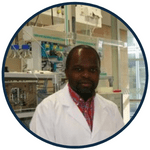 Olivier Heudi
Olivier Heudi
Laboratory Head
Novartis Pharma AG (Basel, Switzerland)
During my journey, I had the chance to join the EU Marie Curie fellowships program. This has helped me a lot, especially as I was given the opportunity to perform my postdoc in the UK at GSK (Stevenage, UK).
Whilst studying in France, the government helped by offering some scholarships and allowing me to work part-time while I studied.
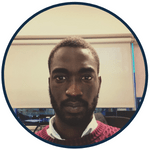 Wonu Adebimpe
Wonu Adebimpe
Senior Scientist
Recipharm (Queenborough, UK)
I have found that attending webinars and conferences are extremely good resources, which helped provide me with updates on the most recent breakthroughs and challenges within the industry and gave me the opportunity to network. It is important to showcase your knowledge, diligence and experience in the industry/profession, as this is vital in order to get recognized for future prospects.
Reading articles on developments, both new and old is something I would recommend, as it will keep you informed as well as add value to the knowledge you already possess.
